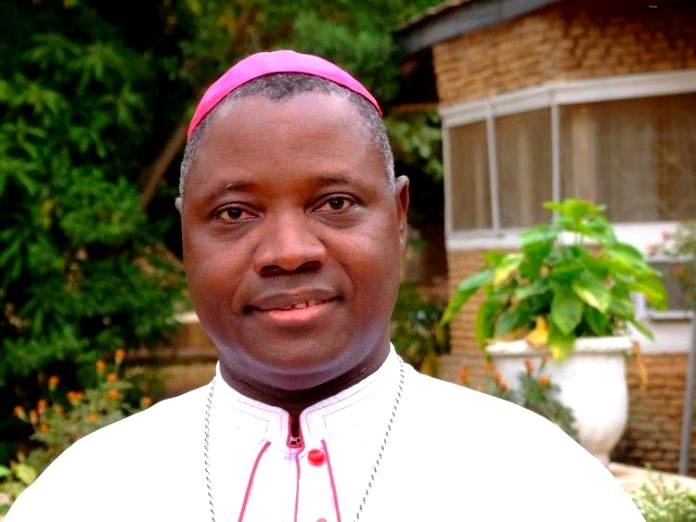#TrackNigeria: In the last couple of years, there have been so many commentaries about Boko Haram terrorism and insurgency in the Lake Chad basin. A lot of these efforts have focused on the causality of the conflict on the one hand and the response of the military on the other. However, proportionate attention has not been given to the context of Boko Haram terrorism and insurgency. In other words, a framework within which analyses of Boko Haram insurgency and the resultant counterinsurgency could be organized has not fully emerged.
As a result, most conversations arising from the subject matter clearly miss the point, misinform the public, reassure terrorists and expose troops to avoidable danger. This scenario suggests that analyses of Boko Haram insurgency and counterinsurgency efforts are being done outside the context of 21st Century warfare.
Therefore, in seeking to put forward a plausible framework for understanding the issues surrounding Boko Haram insurgency and indeed counterinsurgency architecture of the Armed Forces of Nigeria, it is relevant to understand first the ecology of the conflict playing out in the North East.
NEW WAR
Following the end of the Cold War, the dynamics of conflicts changed fundamentally. Warfare, which for hundreds of years was the preserve of nation-States, witnessed the active participation of non-State actors and sub–national entities. In other words, the complexion of warfare changed, necessitating the coinage of the controversial term “New War” by British academic, Mary Kaldor.
According to Kaldor “new wars have a logic that is different from the logic of the ‘old wars’ – the idea of war that predominated in the nineteenth and twentieth centuries”. For instance, Old wars were fought by regular armed forces of states. New wars are fought by varying combinations of networks of State and non-State actors – regular armed forces, private security contractors, mercenaries, jihadists, warlords, paramilitaries, etc.
Secondly, Old wars were fought for geopolitical interests or for ideology (democracy or socialism). New wars are fought in the name of identity (ethnic, religious or tribal). Kaldor observes that identity politics has a different logic from geo-politics or ideology. Kaldor suggests that the aim is to gain access to State authority for particular groups (that may be both local and transnational), rather than to carry out particular policies or programmes in the broader public interest. Viewed from this perspective therefore, the Boko Haram phenomenon is still a strange experience in our frame of reference; some of its ramifications are just emerging.
FOURTH GENERATION WARFARE
Also relevant to this discourse is the fact that we are now experiencing Fourth Generation Warfare.. This is exemplified by a period in the continuing evolution of war when nation-States lose their monopoly on war. It is typified by a situation whereby State militaries have found themselves fighting sub–national or non–State opponents like the Al Qaeda, Islamic State, Al Shabab, the Taliban and Boko Haram, among others. This period is characterized by ambitious and audacious attacks like 9/11, attack at Police Headquarters and the UN building in Abuja.
Fourth Generation war is also marked by a return to a world of identity and culture; a phenomenon which Samuel Huntington dealt with extensively in his book “The Clash of Civilizations”. Fourth Generation is also epitomized by contrived migration intended to tilt demography within populations for future political advantage.
Furthermore, as militaries around the world ponder the appropriate response to these issues, they also have to contend with the reality that the enemy in the Fourth Generation battle space is not a signatory to the Geneva Convention on the Laws of Armed Conflict. Yet, the military who must fight him must abide by the norms of the convention. It is also important to note that in the Fourth Generation, victory does not necessarily lie in manoeuver and firepower or organization and establishment, but in the strategic, mental and moral domains where strange and unexpected umpires include Non-Governmental Organizations and Civil Society Groups.
Perhaps, of the greatest concern to military commanders is the reality that in the Fourth Generation warfare, there is no strict frontline or rear area. Everywhere is a battle front and in the midst of civilians. Consequently, the asymmetry of methodologies promotes decentralization, initiative, lone wolf syndrome, and leaderless rebellion, thereby slanting the balance in favour of non-State actors. The aftermath is that conflicts have become increasingly complex and extremely difficult for militaries to deal with, comparative to Third Generation warfare, when wars were basically between opposing national militaries and in a conventional setting.
THE ROLE OF NGOs / CSOs
Like all other conflicts, the Boko Haram insurgency in the North East has generated its fair share of Complex Emergencies. It has also attracted a gathering of assorted International and local Non-Governmental Organizations (NGOs) and Civil Society Organizations (CSOs) in a bid to find solutions to the resultant humanitarian crises. In my view, they have done well across the spectrum of their responsibilities. However, the proliferation of NGOs in the last couple of years and their pervasive influence have ensured their movement from the backstage to center stage in national and world politics respectively.
Consequently, they have been exerting their power and influence in every aspect of national and international politics and policymaking. Naturally, abuses of power, influence and trust have accompanied the growth of NGOs. The use of NGOs by terrorists as cover for terror financing and other sordid engagements, as well as the experience of OXFAM in Haiti are cases in point.
In the North East the issues with NGOs and CSOs have been the under–reporting of atrocities committed by terrorists and the targeting and misrepresentation of the military. The mostly one sided reports by Amnesty International in particular and other fringe interest groups alleging wrong doing by the Nigeria Army in the conduct of Counterinsurgency Operations are usually based on accounts of people who are themselves terrorists or accomplices of terrorism. Also, the expectation that civilian casualties are completely avoidable in the North East is totally wrong considering the peculiarities of Fourth Generation warfare which I explained earlier.
Furthermore, the tendency to evaluate Fourth Generation military operations with the parametres developed for Third Generation warfare can only lead to conclusions which are not in sync with reality. This misunderstanding and failure to appreciate the complexity of the new war have characterized relations between the military and the NGO community in the North East and have not only denied the military credit for successes achieved so far, it has eroded the confidence of service personnel, questioned their believe in the cause and threatened the cohesion and combat efficiency of troops.
Inaccurate and prejudiced reports by NGOs have also diminished the reputation of the military in the perception of the public. In all of these instances, Boko Haram benefits. An urgent need exists therefore for a new paradigm for assessing military operations in the Fourth Generation.
BOKO HARAM TERRORISM/ INSURGENCY
There is no gain saying that Boko Haram has leveraged and benefitted immensely from all the nuances and subterranean tactics available in the Fourth Generation. In fact, Boko Haram has made a vital contribution to the tactics of Fourth Generation war via its introduction of mass abduction of school children, exemplified by the Chibok and Dapchi incidents. It would be recalled that the Ambazonia insurgents in Cameroon emulated the same tactics in 2018.
Perhaps, the critical advantage that Boko Haram has is the intricate support system that it has managed to develop within the population, using the instruments of religion and identity. As a result of these two factors, Boko Haram has had a very successful campaign of deploying Person Borne Improvised Explosive Devices (Suicide Bombing), considering that such terror tactics is relatively new in our environment. Boko Haram has also leveraged the expertise of Islamic State in all phases of its terror campaign in the Lake Chad Basin.
THE NORTH EAST OPERATIONS
The issues discussed above shape and define the new conflict ecosystem. Nevertheless, the Nigerian Armed Forces have responded professionally to these realities. It would be recalled that at the inception of the current administration in 2015, the President directed the immediate relocation of the Military Command Centre to Maiduguri for more effective coordination of military operations. On his part, the Chief of Army Staff, Lieutenant General Tukur Yusufu Buratai has initiated a series of concrete measures which have repositioned the Nigerian Army to better deal with the challenges of Fourth Generation Warfare.
These measures include the surge operation; exemplified by the establishment of new formations and induction of units in the North East..
The Chief of Army Staff also introduced mobile brigade concept to enable the Nigerian Army deal with the ubiquity of Boko Haram terrorists. Other enduring measures include establishment of logistics bases, Human Rights desk to deal with issues abuses, introduction of new platforms and improved troops welfare. The results from the field have been encouraging. The inability of Boko Haram to disrupt the 2019 elections and the leadership crisis in Boko Haram are vivid success indicators.
Like the military have adopted new operational procedures and tactics to deal with threats in the new conflict ecosystem, it behooves Human Rights groups, Civil Society Organizations and other bodies who exercise oversight functions on the conduct of military operations to recognize that warfare is now in its Fourth Generation.
Therefore there is the need to update the relevant statutes. Furthermore, the dynamics and tactics are completely different from what obtained in the Third Generation, therefore, a new template for scrutinizing and evaluating military operations should be developed.
Colonel Timothy Antigha is Chief of Military Public Information of Multi-National Joint Task Force (MNNJT), N’Djamena, Chad



